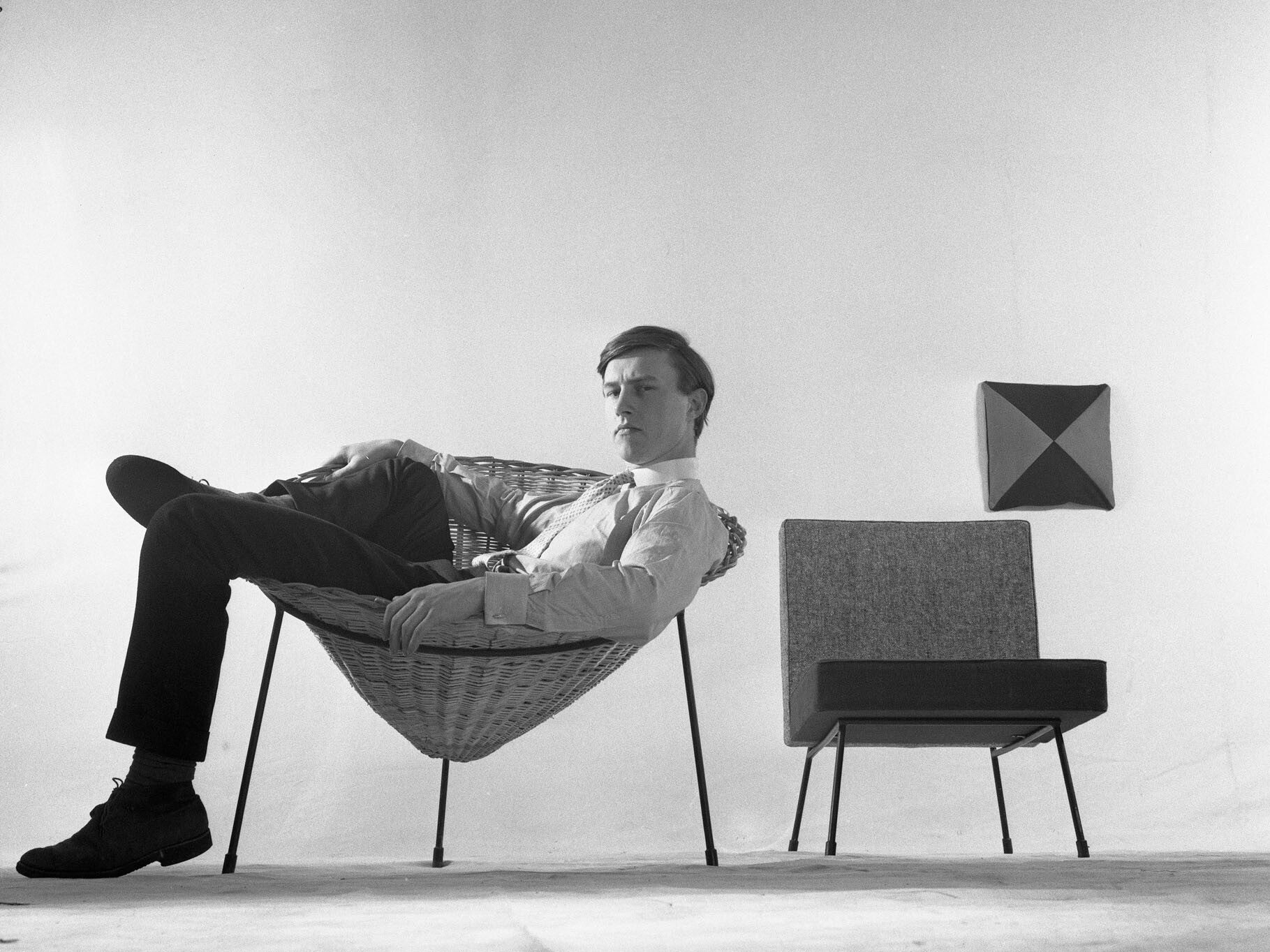Terence Conran: Pioneering designer who founded Habitat and revolutionised the way we live
Visionary began his career making and selling flat-pack furniture

Your support helps us to tell the story
From reproductive rights to climate change to Big Tech, The Independent is on the ground when the story is developing. Whether it's investigating the financials of Elon Musk's pro-Trump PAC or producing our latest documentary, 'The A Word', which shines a light on the American women fighting for reproductive rights, we know how important it is to parse out the facts from the messaging.
At such a critical moment in US history, we need reporters on the ground. Your donation allows us to keep sending journalists to speak to both sides of the story.
The Independent is trusted by Americans across the entire political spectrum. And unlike many other quality news outlets, we choose not to lock Americans out of our reporting and analysis with paywalls. We believe quality journalism should be available to everyone, paid for by those who can afford it.
Your support makes all the difference.Terence Conran, the British designer, retailer and restaurateur who built a furniture empire around the world, founded the Design Museum in London and modernised the everyday lives of British people, has died at 88.
In a statement released by the Design Museum, his family described Conran as a “visionary” who “revolutionised the way we live in Britain”. They said Conran died peacefully at his Berkshire country home, Barton Court.
Through his array of work, Conran, who was knighted in 1983, promoted British design, culture and the arts around the world.
“At the heart of everything he did was a very simple belief that good design improves the quality of people’s lives,” his family said.
Born in Kingston upon Thames, Surrey, in 1931, Conran began his career making and selling furniture, including innovative flat-pack furniture.
He went on to open restaurants across the capital before launching the Habitat retail chain in 1964 on Fulham Road in Chelsea, which was at the heart of the “Swinging Sixties” phenomenon in the capital.
Among other highlights in his wide-ranging career, Conran bought the Michelin Building on the Fulham Road in London in 1987, refurbishing it to become home for the Conran Shop, Octopus publishing and the Bibendum restaurant.
Conran's ambitions expanded across the Atlantic. As early as 1976, he opened a Habitat shop at the Citicorp building in Manhattan under the name Conran. In the 1990s, his international operations grew further, with the opening of a Conran Shop in Tokyo in 1994, followed five years later with one in New York underneath the 59th Street Bridge.
“From the late Forties to the present day, his energy and creativity thrived in his shops, restaurants, bars, cafes and hotels and through his many design, architecture and furniture making businesses,” his family said.
The family also said his involvement in founding the Design Museum in 1989 was one of his “proudest moments”.
Tim Marlow, the museum’s chief executive, said Conran was “instrumental in the redesigning of post-war Britain and his legacy is huge”.
“He changed the way we lived and shopped and ate,” he said.
Conran’s private life was as eventful as his professional career. The first of four marriages, to architect Brenda Davison in 1952, was over almost before it had begun, and by 1954 he had wooed and wed Shirley Pearce, a journalist who was to go on to leave her own unique mark on the world.
As Shirley Conran she wrote self-help guide Superwoman (1975) and followed up in 1982 with “bonkbuster” Lace, whose cast contained more than a few characters drawn from the couple’s social and business circles.
The marriage itself ended in 1962 but produced sons Sebastian and Jasper, both of whom would go on to be successful designers.
The following year Caroline Herbert became the third Mrs Conran, and Lady Conran 20 years later when Conran was knighted. All three of their children – Tom, Sophie and Ned – forged successful careers in the creative sector, notably in food writing and as restaurateurs.
The couple’s divorce in 1996 saw food writer Caroline awarded £10.5m in settlement, paving the way for his final union, four years later, with Vicki Davis.
Sir Terence Conran, born Kingston upon Thames, 4 October 1931, died 12 September 2020
AP

Join our commenting forum
Join thought-provoking conversations, follow other Independent readers and see their replies
Comments